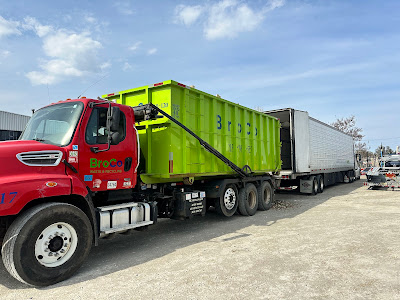Waste monitoring or waste disposal consists of the processes and activities required to handle waste from its inception to its final disposal. This consists of the collection, transport, therapy, and disposal of waste, along with tracking and guideline of the waste administration procedure and waste-related regulations, modern technologies, and financial systems. Waste can either be solid, fluid, or gases and each kind has various approaches of disposal and management. Waste monitoring deals with all types of waste, consisting of industrial, chemical, local, organic, biomedical, and contaminated wastes. In some cases, waste can present a threat to human health and wellness. Wellness issues are connected with the whole process of waste management. Wellness problems can likewise arise indirectly or straight: directly through the handling of strong waste, and indirectly with the usage of water, soil, and food. Waste is generated by human activity, for example, the extraction and handling of raw materials. Waste monitoring is meant to minimize the damaging impacts of waste on human health, the atmosphere, global sources, and appearances. The purpose of waste administration is to reduce the hazardous results of such waste on the setting and human wellness. A huge component of waste monitoring manage community solid waste, which is developed by commercial, industrial, and house activity. Waste management techniques are not the exact same across nations (developed and establishing countries); areas (urban and backwoods), and residential and industrial fields can all take different methods. Proper administration of waste is essential for building sustainable and livable cities, however it continues to be a difficulty for numerous establishing countries and cities. A report discovered that efficient waste monitoring is fairly pricey, generally comprising 20%–-- 50% of municipal spending plans. Operating this important community service calls for integrated systems that are effective, lasting, and socially sustained. A huge portion of waste management practices deal with municipal strong waste (MSW) which is the mass of the waste that is produced by house, commercial, and commercial task. According to the Intergovernmental Panel on Climate Adjustment (IPCC), municipal solid waste is anticipated to get to around 3. 4 Gt by 2050; nonetheless, plans and lawmaking can lower the quantity of waste generated in various locations and cities of the globe. Measures of waste management include procedures for integrated techno-economic mechanisms of a circular economic climate, reliable disposal facilities, export and import control and ideal sustainable style of products that are created. In the initial methodical testimonial of the clinical proof around global waste, its management, and its influence on human health and wellness and life, writers ended that concerning a fourth of all the metropolitan strong earthbound waste is not gathered and an additional 4th is mismanaged after collection, frequently being shed in open and unrestrained fires –-- or near to one billion heaps each year when incorporated. They also found that wide priority areas each do not have a "top quality research base", partly due to the absence of "significant research funding", which inspired researchers frequently require. Electronic waste (ewaste) consists of discarded computer displays, motherboards, smart phones and chargers, cds (CDs), earphones, television sets, ac unit and refrigerators.According to the Global E-waste Monitor 2017, India produces ~ 2 million tonnes (Mte) of e-waste each year and ranks fifth among the e-waste producing nations, after the United States, the People's Republic of China, Japan and Germany. Reliable 'Waste Management' involves the practice of '7R' - 'R'efuse, 'R'educe', 'R'euse, 'R'epair, 'R'epurpose, 'R'ecycle and 'R'ecover. Among these '7R's, the initial 2 ('Refuse' and 'Decrease') relate to the non-creation of waste - by refusing to purchase non-essential items and by decreasing consumption. The following 2 ('Reuse' and 'Repair work') refer to enhancing the use of the existing product, with or without the replacement of particular parts of the product. 'Repurpose' and 'Recycle' include maximum use of the products utilized in the item, and 'Recoup' is the least preferred and least reliable waste management method involving the recuperation of ingrained power in the waste product. As an example, melting the waste to generate warmth (and electrical power from warmth).
.

